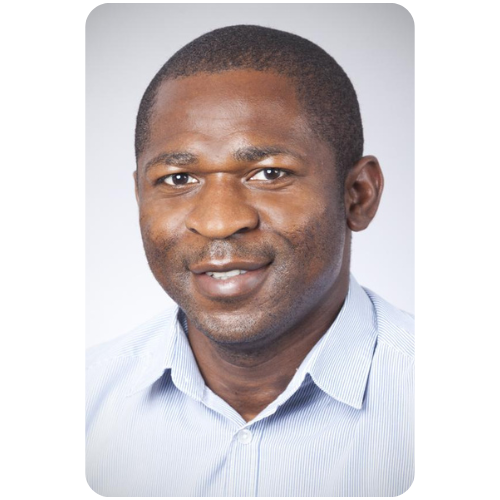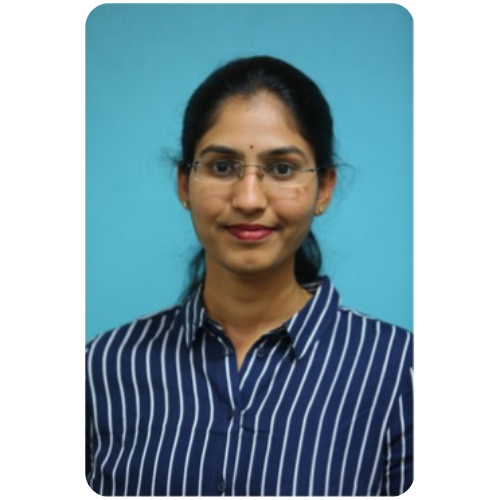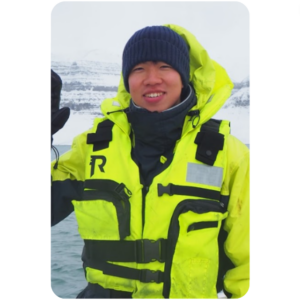iHARP -> About -> People -> Research Assistants
last updated 2024 March 5
Meet iHARP’s Research Assistants!
Learn more about the Research Assistants who are powering iHARP’s ground breaking research.

Tolulope Ale
UMBC, PhD
Tolulope Ale, MSc., is a doctoral student in the information systems department. He obtained a master’s degree in physics from the University of Texas at El Paso in 2021 with a focus on computational biophysics. He is interested in applied Data Science and Machine Learning. Tolu is conducting research in the Data Mining/Machine Learning area under Dr. Vandana Janeja. His interest is in identifying anomalous associations in temporal data that can be further used in predictive analytics. Tolu’s research is focused on mining multivariate anomalous temporal events in the Arctic domain.

Maruthi Prasanna Chellatore
Uni. of North Texas, Master’s Student
Maruthi Prasanna is currently working under Dr. Sharad Sharma. He is pursuing his master’s in computer science from Fall 2023 at the University of North Texas. Before that, He was an experienced software professional with a demonstrated history of working in the Information Technology & Services industry. Skilled in Microsoft technologies c#, .Net, .Net Core, .Net MAUI, and Unity. He is part of the DVXR lab and he is working on a mobile application on Time Series Analysis for Detecting Anomalous Behavior using a Mobile Device and an Augmented, Virtual reality project on Crime data analysis, Active Shooter Response and Training which provides training in the emergencies for campus safety.

Maloy Kumar Devnath
UMBC, PhD
Maloy Kumar Devnath is a Ph.D. student in the Information Systems Department at the University of Maryland Baltimore County. His current research focuses on comprehending the melting patterns of sea ice and investigating its implications on the melting of land ice, which is a key factor contributing to the rising sea levels. Maloy is conducting his research in the Artificial Intelligence/Machine Learning area under the supervision of Dr. Vandana P. Janeja and Dr. Sudip Chakraborty. His academic journey began with a BSc degree, and he briefly worked as a Software Developer at Code Crafters International Limited. Following his passion for education, he transitioned to an academic role as a Lecturer at Bangabandhu Sheikh Mujibur Rahman Science & Technology University, Gopalganj. He is proud to share that, on June 3, 2022, he was promoted to Assistant Professor, reflecting his dedication to teaching.

Subhankar Ghosh
University of Minnesota, PhD
Subhankar Ghosh is a PhD student at the University of Minnesota working with Professor Shashi Shekhar. His previous projects were focused on colocation pattern detection of entities such as retail establishments with statistical guarantees. He is currently working with domain scientists in iHARP on different pattern-mining techniques.
Subhankar’s Website: https://subhankarghosh.github.io/
Google Scholar: Google Scholar – Subhankar Ghosh

Nidhin Harilal
Uni. of Colorado Boulder, PhD
Nidhin Harilal is a Ph.D. student in computer science at the University of Colorado, Boulder. His research is at the intersection of machine learning, computer vision, unsupervised/representation learning, and its applications in Earth and atmospheric sciences. His recent projects have included developments of novel deep-learning methods for high-dynamic range video reconstruction supervised and semi-supervised climate downscaling.

Emam Hossain
UMBC, PhD
Emam Hossain is currently pursuing his Ph.D. in the Department of Information Systems at the University of Maryland Baltimore County. Prior to this, he earned both his Bachelor’s and Master’s degrees in Computer Science from the University of Chittagong, Bangladesh. His research focus encompasses the domains of machine learning, deep learning, and causality. Emam Hossain has established a notable research portfolio in these areas, featuring numerous publications in international journals and conferences. In his role at iHARP, he is actively doing research in investigating the formation dynamics of subglacial lakes within the Greenland Ice Sheet (GrIS) and analyzing their potential implications for future ice mass loss.
Google Scholar: Google Scholar – Emam Hossain

Yuchuan Huang
University of Minnesota, PhD
Yuchuan Huang is a PhD student in the Department of Computer Science & Engineering at the University of Minnesota, Twin Cities. His research interest is database management systems. Prof. Mohamed F. Mokbel advises Yuchuan.

Chhaya Kulkarni
UMBC, PhD
Chhaya Kulkarni is a PhD student in Information Systems major studying at University of Maryland Baltimore County. Her primary interest lies in spatiotemporal data mining. Her area of focus is on investigating spatiotemporal relationships between ocean and atmospheric variables affecting various polar regions.

Francis Nji
UMBC, PhD

Rishitha Reddy Pesaladinne
Uni. of North Texas, Master’s Student
Rishitha Reddy Pesaladinne is currently working under Dr. Sharad Sharma. She is pursuing her master’s in computer science from Spring 2023 at the University of North Texas. She is an experienced software professional skilled in Microsoft technologies c#, .Net, .Net Core, .Net MAUI, and Unity. She is part of the DVXR lab, and she is working on the Augmented reality and virtual reality project Mobile Augmented Reality Application(MARA) at UNT. This research develops the science needed to enhance mobile augmented reality applications with (a) Situational awareness, (b) Navigation, (c) Evacuation, and (d) Emergency response. This will advance discovery of visualization techniques to permit mobile applications to enhance the viewing of the physical world, while promoting contextualized 3D visualizations, spatial knowledge acquisition and cognitive mapping thereby enhancing situational awareness.

Akila Sampath
UMBC, PhD
Akila Sampath is a PhD student at IS department at the University of Maryland Baltimore County. Her PhD advisor is Prof. Jianwu Wang, and her co-advisor is Prof. Vandana Janeja. Her research focuses broadly on the application of AI to the Arctic climate. She currently works as a research assistant at iHARP. The goal of her thesis work is to build a physics-guided ML model to exploit causalities between Arctic climate phenomena.

Suruthi Selvam
Uni. of North Texas, Master’s Student
Suruthi Selvam is currently working under Dr. Sharad Sharma. She is pursuing her master’s in data science from Spring 2023 at University of North Texas. Prior to that, she has been working as a full stack web developer for 5 years with leading MNC’s in India. She is part of DVXR lab, and she was working on a mobile application which facilitates object detection and emotion detection. She is also interested in Augmented reality and virtual reality projects.

Ziqi Yin
Uni. of Colorado Boulder, PhD
Ziqi Yin is a PhD student at the Department of Atmospheric and Oceanic Sciences at CU Boulder. He is interested in ice sheet-climate interactions, numerical modeling, and exploring new methods to improve models and our understanding of ice sheets and climate.